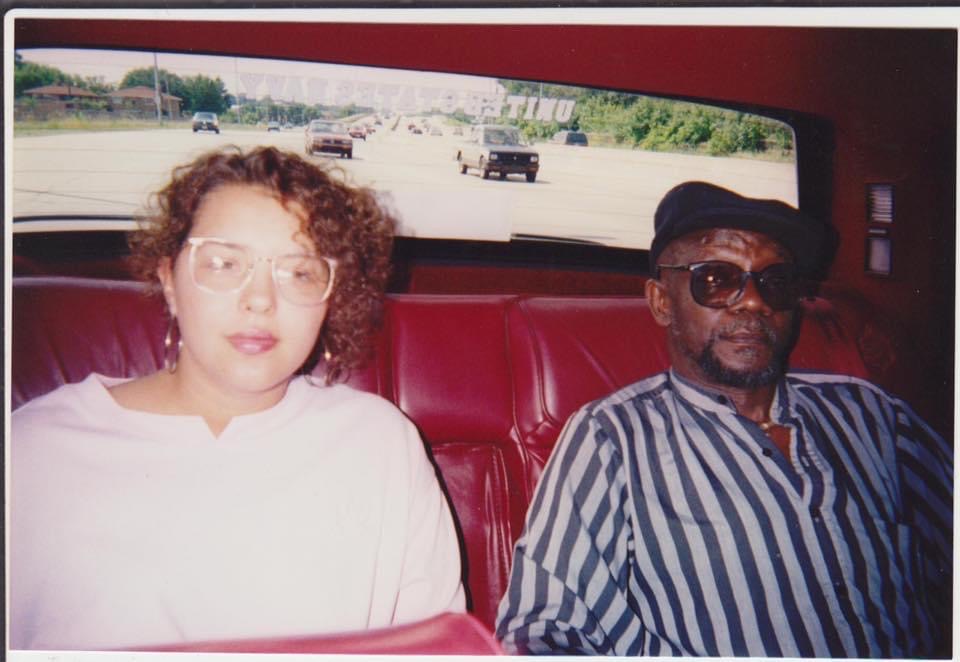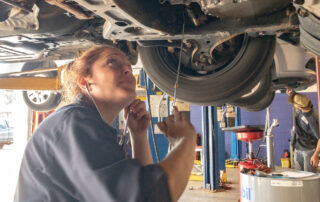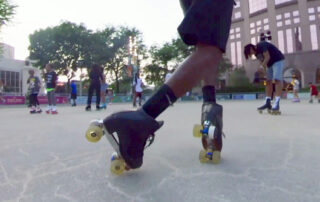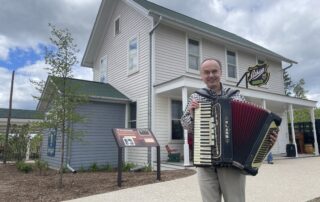Many of us reach a point in life when it’s our turn to take care of our parents. That was the case for Hedi Lamarr Rudd, whose father, LaVelle, had an enormous impact on her life and left a lasting impression on everyone who knew him. She shared their story at the UW Continuing Studies Writers’ Institute.
===
My father, LaVelle F. Rudd, had replacement parts all over his body. His hips were replaced and he still tried to straddle a motorcycle. The source of his fragility and his strength was a diagnosis of lupus that he received when he was released from prison around 1978.
I remember us being angry at first because he didn’t know what was wrong. His fingers hurt, he said. I remember him saying, “How does a black man go to the doctor and cry that his fingers hurt?” Eventually his already dark fingers turned black with gangrene, resulting in the amputation of most of them. A musician, a writer, a mechanic, a lover. My father found ways to use those nubs to accomplish his goals, but he was never the same.
Fingers gone, hips replaced, knees next and then the glorious day when he received a halo — a contraption that surrounded his chest with bars up to and surrounding his skull to keep his neck and spine from moving. One day he grew very sick, slipping into a coma. He was brought to Meriter Hospital rather than University Hospital, which is where he was normally treated. A few hours later, the phone rang.
“Ms. Rudd, this is Meriter Hospital. Your father has checked himself out.”
“Excuse me?” I said. “He was just in a coma. How could he check himself out?”
The doctor went on to explain that he had awakened shortly after we left and demanded to be released. They told him that he was in no position to be released and explained why he had been admitted. As soon as he was left alone, he unplugged his IVs and tubes, put on a multicolored robe and hospital slippers and walked out of the hospital. We followed his elusive trail on foot and by car, looking everywhere.
It should have been easy to find an elderly black man wearing a Moses robe, but it was more difficult than we expected. We returned home to wait for a call from the police, who we hoped would have better luck than we did. When the call came we rushed to the hospital and there sat my dad in a wheelchair with a mischievous grin on his face. The officers explained that they had found him at the Citgo gas station on East Washington Avenue. We later found out the little devil had a brain aneurysm, which is how he found himself wearing the halo.
Over 100 hip dislocations later, the doctors at University Hospital accused him of purposely dislocating his hip in order to obtain prescription drugs. My dad responded that he could buy much better drugs on the street, to which they chalked him up as a drug addict and began to treat him as such.
One resident orthopedic doctor decided that rather than continue to put his hip in place again (after being admitted twice in a 24 hour period for separate dislocations), he would put the hip back in and then place a plaster cast around my father’s torso. The episode crushed his spirit.
A few months later, he was back in the hospital. When I went to visit him, he said, “I shouldn’t have woken up this morning. I don’t think I will tomorrow.” I remember once telling him that I never wanted him to die, and he said he would let me know when he was going to die. I told him that’s not how it worked. So I said, I’ll be back to see you tomorrow.
The call came at 3 a.m., he was finally free. He had kept his promise to me and let me know that it was his time.
After the funeral, we cremated my father. I thought about my father’s gifts to the world — his writing, his music and the memories that others carried of him inside of their hearts. I didn’t know if he was in heaven or hell, but I knew that what he left behind was as important as what we had lost when he left. And I promised myself that I would live that kind of life. When I leave the planet, people would know that I was here.
The last promise to keep is mine.









